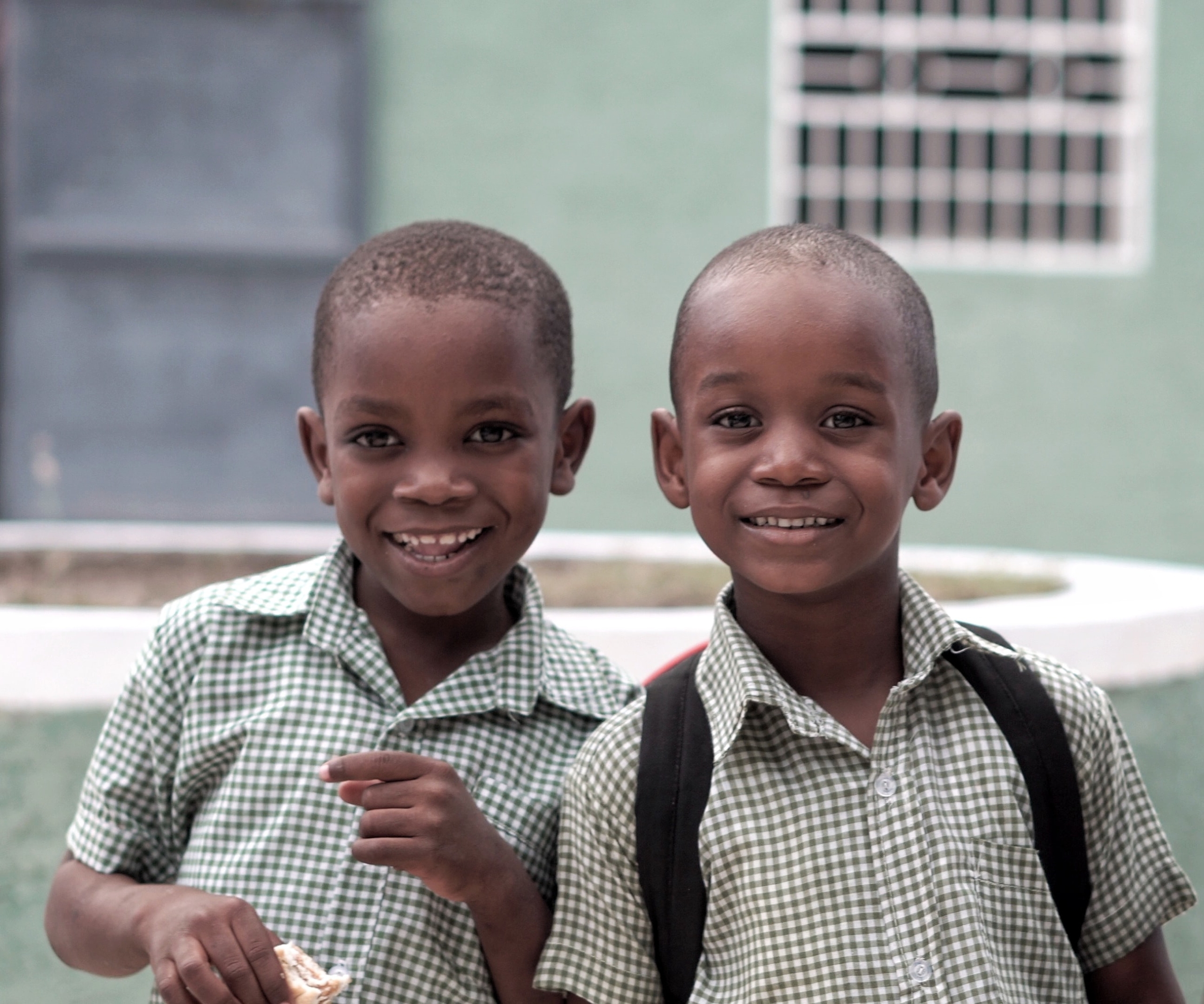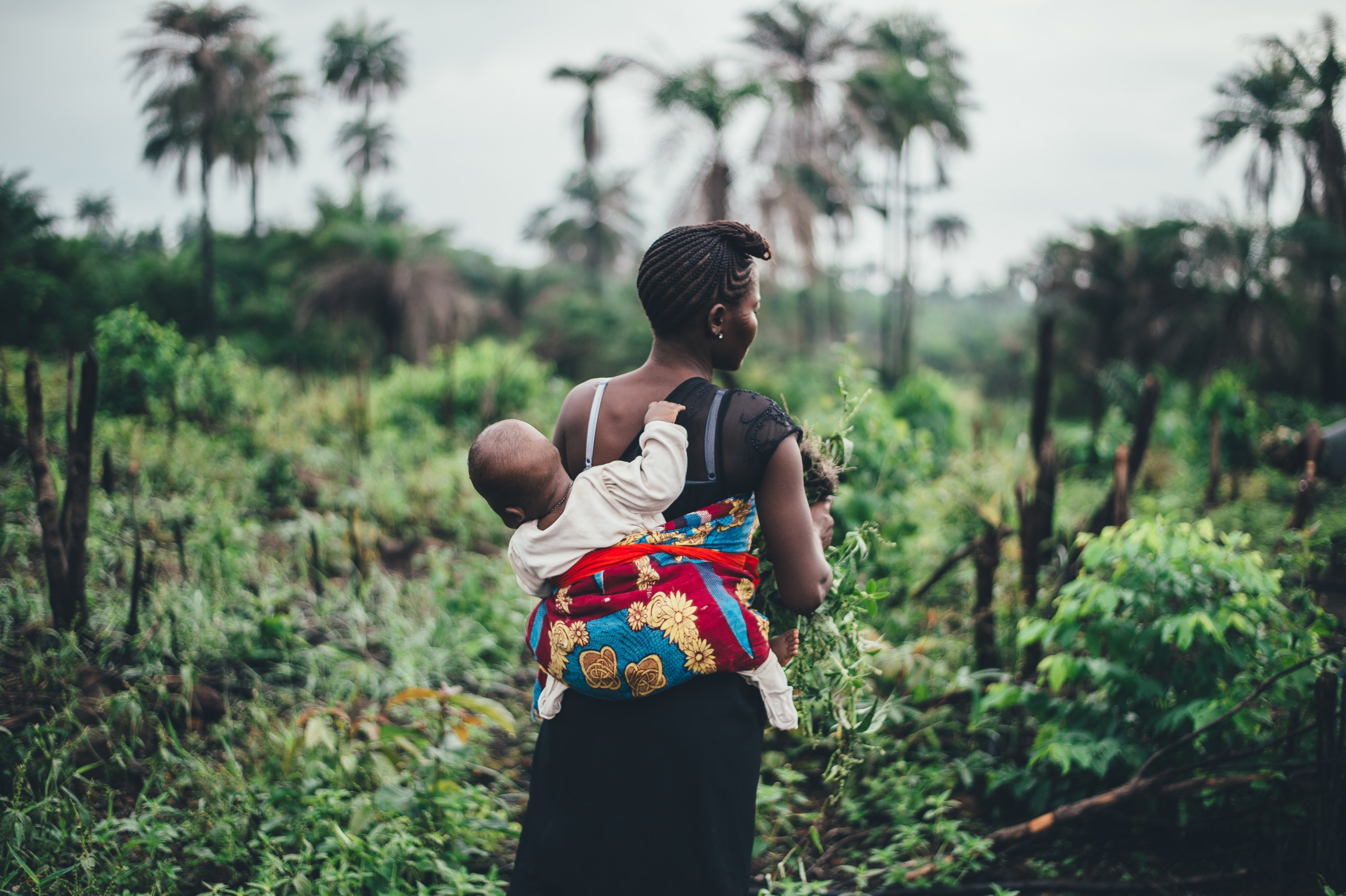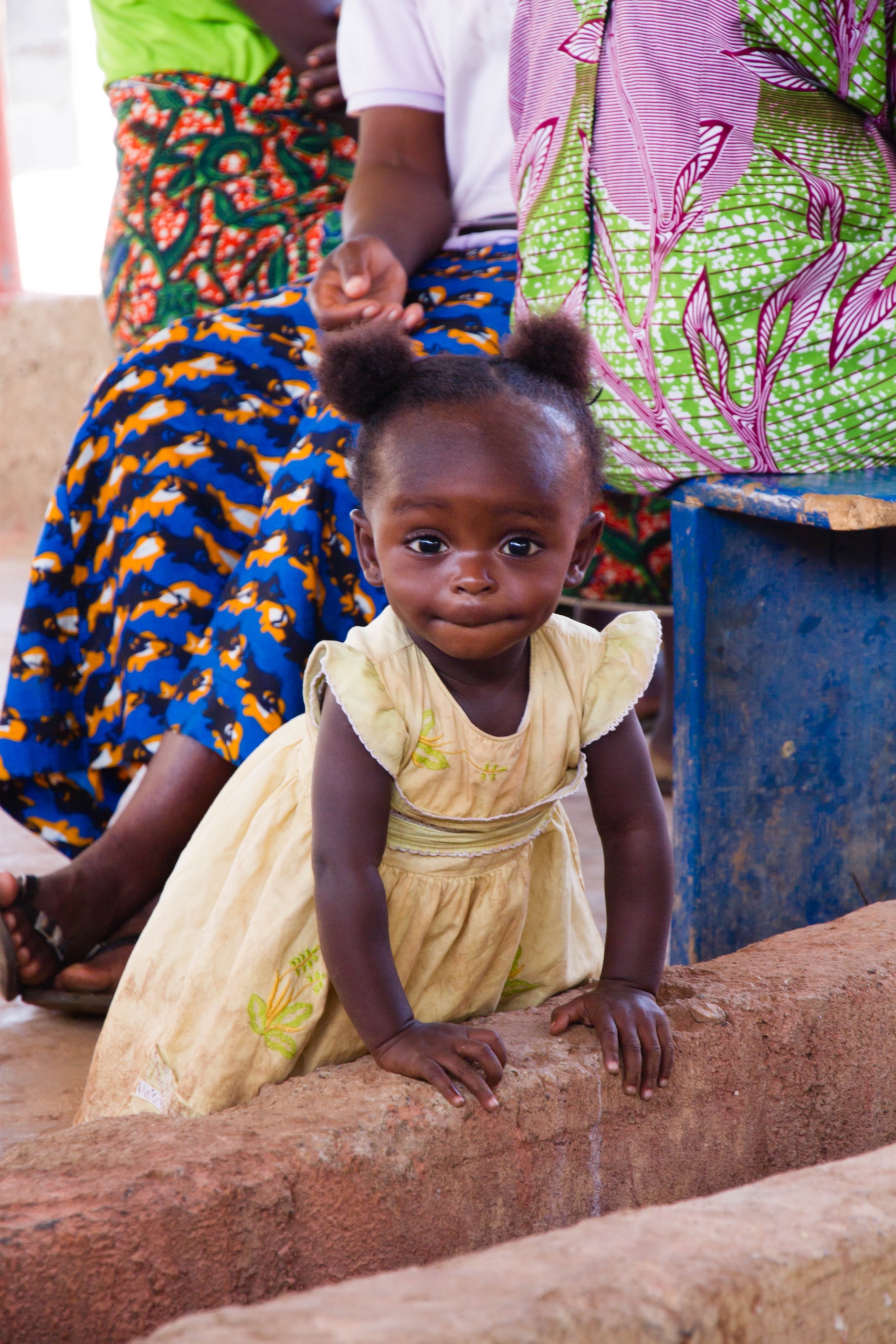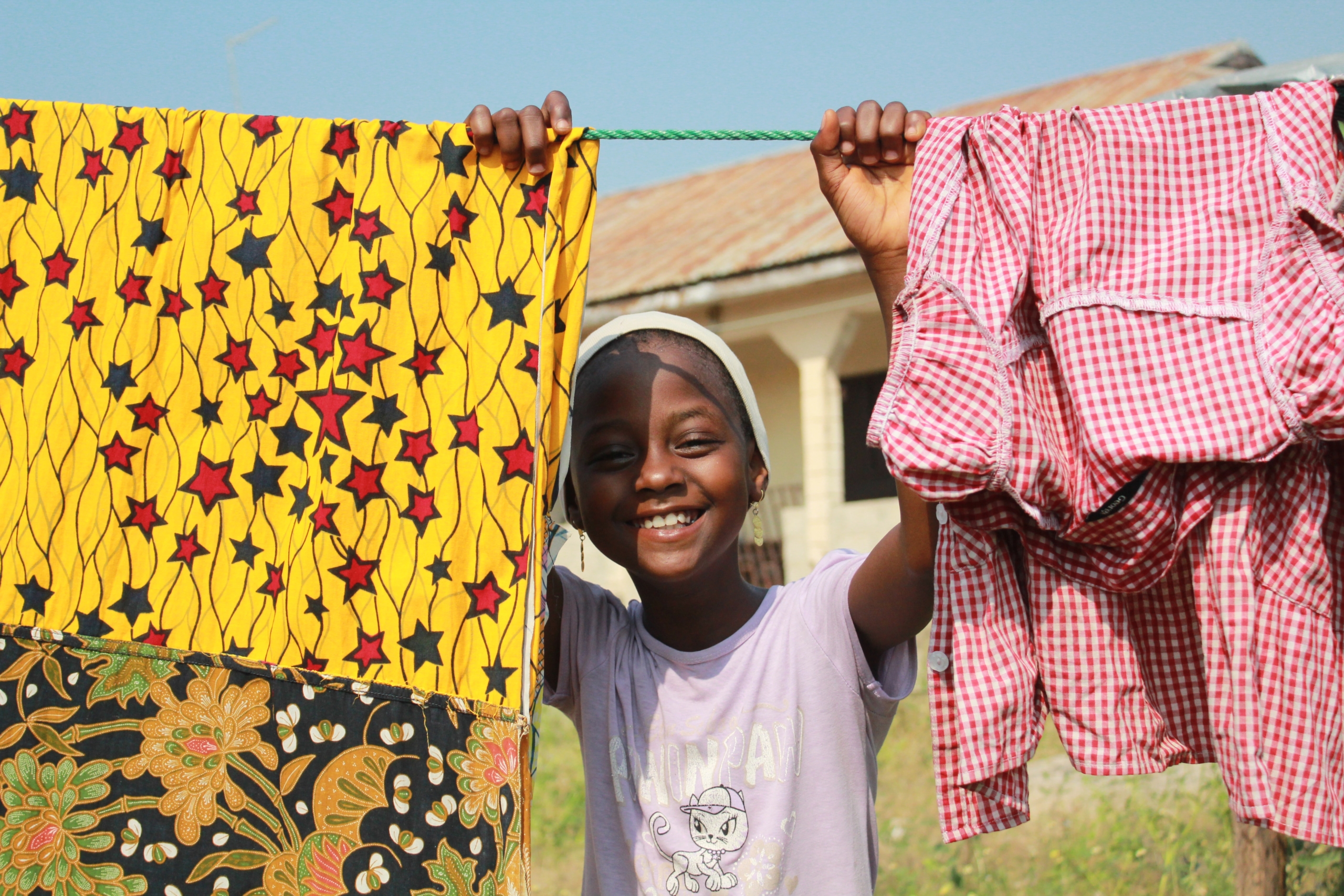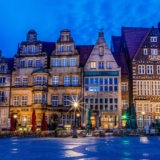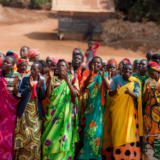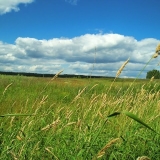In Africa, names are not just useful tags that people put on their children to recognize and distinguish them: they are emblems. These names collect cultural traditions, belief systems, and social stratifications, conveying messages important for a family and for the whole community as well. In this article, we will look at several African customs related to names, from the welcoming ceremonies exercised in many countries up to this day to the various strategies of choosing names for children that these cultures adapt. Maybe you can also find inspiration from these cultural symbols and deepen your knowledge about how beautifully diverse cultures are.
Ceremonies
“Oruko rere san ju Wura ati Fadaka.” (A good name is more precious than gold and silver.) — Yoruba proverb1
The birth of a child is a big event in the life of all families, which they celebrate by organizing different welcoming events together with relatives and friends. In many cases, the name of a child has already been decided by the time they reach this celebration, but in Africa, newborns often receive a name for the first time during this occasion. The naming ceremony gives additional importance for the chosen name, so this selection is made with much care and attention. Two examples of African ethnic groups keeping such traditions are the Mandinka and the Yoruba people.
The Mandinka community (Gambia) organizes the naming ceremony one week after the birth of a child, usually in the morning. An elder is chosen to lead the event and to introduce the baby into the community by offering it a name. This person first shaves the baby’s head or cuts a lock from their hair while uttering a silent prayer, and then whispers the chosen name into their ears before saying it out loud for the whole group of friends and family to hear it. The hair taken from the child is burned and then the child receives gifts from the guests. During this ceremony animals are slaughtered and food is prepared for a big feast and celebration honoring the gift of life. A traditional kind of food offered for the guests is kola nuts, which has an additional symbolic meaning and is believed to help in gaining blessings from the ancestors.
A very similar naming ceremony takes place in the Yoruba community (Nigeria) as well, who organize the event in the morning, with the only distinction that it takes place on the 8th day from birth in the case of girls and on the 9th in case of boys. During the celebration, spirits of ancestors are invoked and different symbolic foods are used to ask for their blessings: gin and kola nuts, honey, sugar, alligator pepper, palm oil, etc. What’s even more special about this ceremony is that all those gathered at this event can choose a name for the baby by placing money in a bowl of water set on a table where the parents and the baby are seated. They can say a prayer and utter the name they wish to give the child while someone is assigned to note all of these down. The names that are used the most in the first few months of the newborn’s life will stay with them for the rest of the time.
But how do these people decide which name suits the child the best? We’ve gathered a few African name giving strategies which are widely used and cherished by several ethnic communities.
Names and Birth Circumstances
In many African communities people don’t have to bother introducing themselves and entertaining others with stories about how they were born, because their names do this instead of them. It is customary to give children names conveying messages about the circumstances of their birth, since it is believed that these influence their lives on a significant level.
Descriptive names can point towards the place where someone was born, be it a geographical region or something as simple as a location like the hill or the seaside. For example, the Igbo (Nigeria) name Uzoahia means “born on the road to the market” while the Enugu tells about the person who bears this name that they were born on the hill.2 Among the Akan people (Ghana, Ivory Coast), it is possible to name children after the towns they were born in (e.g. Kumase, Bekwae, Kokofu) or other geographical features such as lakes and rivers (e.g. Densu, Afram, Pra)3, but this is no surprise for European cultures either. A similar naming practice is giving children names according to the time of their birth, just as in Luo communities (Kenya, Tanzania) where a child born at night can be called by the term meaning “night” in their language: Atieno for girls and Otieno for boys.
One custom, however, that has an element of wonder in it is naming children after the day of the week they were born on (most people might only recognize this act from Robinson Crusoe with its famous character, Friday). Many African communities engage in choosing names this way, such as the Akan and Igbo people mentioned before. Here’s a brief presentation of Akan personal names based on the days of the week3:
| Weekday | Akan Weekday | Male Name | Female Name |
|---|---|---|---|
| Monday | Edwoada | Kwadwo | Adwoa |
| Tuesday | Ebenada | Kwabena | Abenaa |
| Wednesday | Wukuada | Kwaku | Akua |
| Thursday | Yawoada | Yao | Yaa |
| Friday | Efiada | Kofi | Afua |
| Saturday | Memeneda | Kwame | Ama |
| Sunday | Kwasiada | Kwasi | Akosua |
What would your name be if you were born into their community? It might say something about your personality as well. Among Akan people, these names do not only mean the days of the week; they are considered “soul names”, since they represent the baby’s choice of the time of entering the world, which is said to mirror the child’s personality. If you were born on a Monday, for example, you are supposed to be calm and peaceful as opposed to someone born on a Friday, who is said to be an adventurer.
Names as Numbers
It’s generally believed that the order in which siblings are born mark their temper and characteristics. But in many African cultures, names show how many older siblings someone has. The Soninke people (West Africa), for example, have six names which mark the order of children, and the list starts again if there is a seventh or eighth child too4:
A similar tendency can be seen in the case of Senufo culture (Mali, Ivory Coast) as well, but their list is made up of eight such names instead of six.
| Order | Female | Soma |
|---|---|---|
| 1st | Sira | Soma |
| 2nd | Coumba | Samba |
| 3rd | Fenda | Demba |
| 4th | Taco | Daby |
| 5th | Dado | Paté |
| 6th | Niatou | Yoxo |
One might think that the arrival of twins can cause tricky situations, but these communities have special names for these children as well. In Somalia boy twins are traditionally named Hassan and Hussein. If one of the pair is a girl and the other is a boy, they usually get similar names such as Amir and Amira. The Yoruba community (Nigeria, Benin, Togo) conventionally names the first born twin Taiwo and the second Kehinde. They even have predefined names for the children coming after the twins, these being Idowu and Alaba1.
Names and Social Status
Another aspect that can be conveyed through a name in African cultures is the social status and financial situation of a family, but also the general wellbeing of society in the time a child is born. Someone born into a wealthy family in the Edo (Nigeria) community can be named Idemudia, Abieyuwa or Adesuwa1. The names Akubueze, Udeafo and Nwaobuako have the same significance in Igbo culture (Nigeria)2. An Akan (Ghana, Ivory Coast) newborn in a period of prosperity might be given the names Afriyie or Abayie, both of these meaning that the child was born at the right time. The opposite of this situation is when children are named Antobam or Adiyia, which transmit the message that the baby has chosen an inconvenient time period to arrive.
Besides the financial situation of the parents, names can also contain signs pointing towards the occupation of the family, and this usually marks their lives as well, professions being almost a heritage for children. For example, the Yoruba (Nigeria, Benin, Togo) sometimes insert a prefix before the name which shows the occupation of the family, such as Ode for hunters or Ifa for diviners. The social situation of a person is obvious for anyone who understands these naming systems. Using occupational names is also used in cultures all around the world, but they might have more power over someone’s destiny in this continent.
Spiritual Names
In most cultures, names commonly reflect the religious beliefs of a given family. In several of these countries, however, names have lost their spiritual meanings over time and have entered general secular use. This is not the case with African names from various traditional religions which entail a whole set of meanings for their bearers.
In many ethnic groups, it’s possible to create names out of sentences. Such names in many cases involve a type of divinity, for example in Yoruba religion (Nigeria), where the names Sangoyemi (“delivered by Sango, the god of thunder”), Fabiyi (“delivered by Ifa”) and Ifagbamila (“the Oracle saves and blesses me”) all point towards deities.1
In other religions, it’s customary to give children names with unconventional and “ugly” meanings in order to keep evil spirits away from the newborn. One example is the Hausa (Nigeria) name Ajuji which means “born on a rubbish heap”. It is believed that these names can deceive evil forces into thinking that these children are not loved and thus save them from misfortune.
One last interesting aspect of spiritual names from Africa comes from the belief in reincarnation. Many traditional religions cherish the custom of naming children after the ancestors that they are similar to or that died right before their birth as a way of tying their spirits together and keeping the family values alive. The Igbo (Nigeria) use the names Nnenna (mother of the father) and Nnenne (mother of the mother)2 while the Edo (Nigeria) hold on to this tradition with the names Iye (mother) and Iyorre (I have gone and come)1.
Africa is so diverse and fascinating that it was a great pleasure looking into how different cultures form this continent perceive the naming of children. We can’t help but wonder for how long these traditions will be kept in the African community. Which of these names inspired you the most?
Sources:
- Olatunji A, Issah M, Noah Y, Muhammed AY, Sulaiman A-R. Personal Name as a Reality of Everyday Life: Naming Dynamics in Select African Societies. JPAS. 2015; 8(3):72-90.
http://www.jpanafrican.org/docs/vol8no3/8.3-8-Olatunji.pdf
- Ugochukwu F. La nomination en igbo – consécration et protection. Journal des africanistes. 2011; 81(2):245-263. http://journals.openedition.org/africanistes/4714
- Agyekum K. The Sociolinguistic of Akan Personal Names. NJAS. 2006; 15(2):206-235.
http://www.njas.helsinki.fi/
- Signification des prénoms Soninké. Soninkara. Published 2006. Accessed February 11, 2019
http://www.soninkara.org/forum-soninkara/culture-soninke-culture-generale-f36/topic271.html


